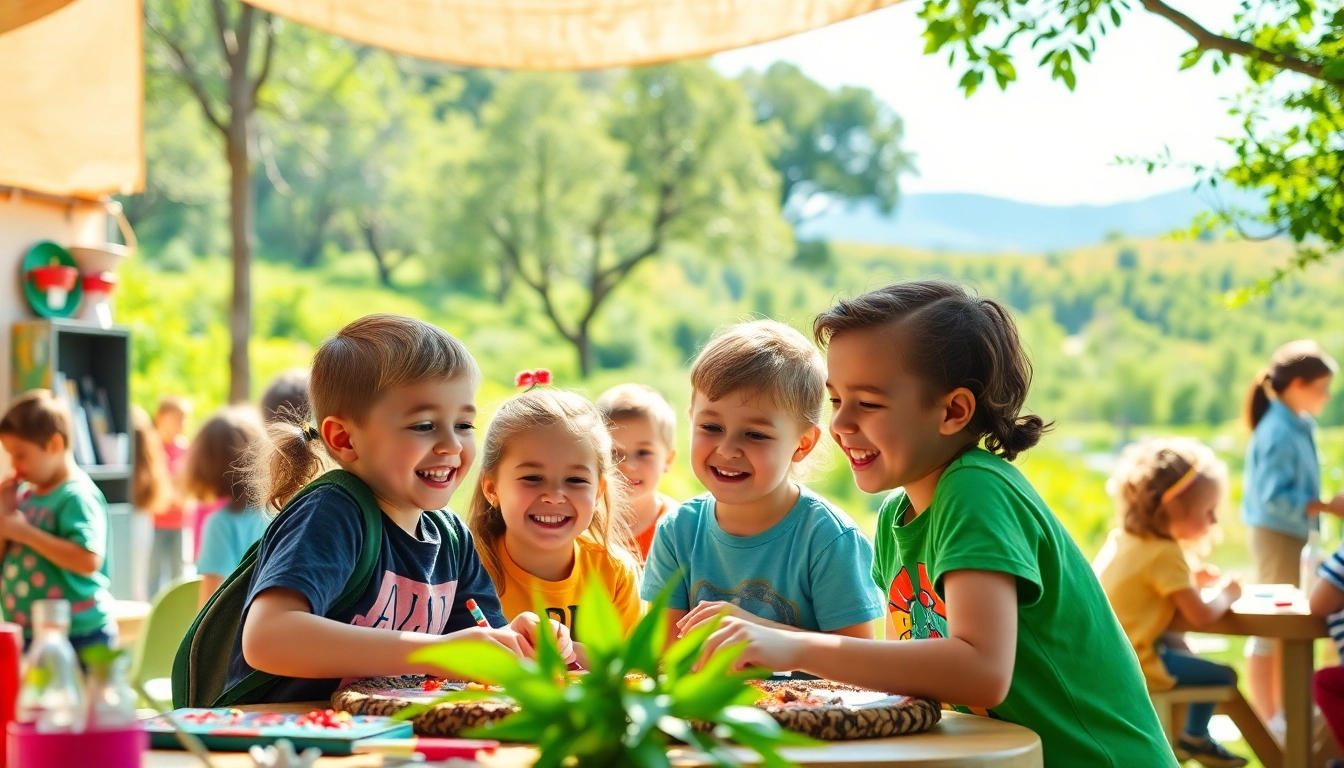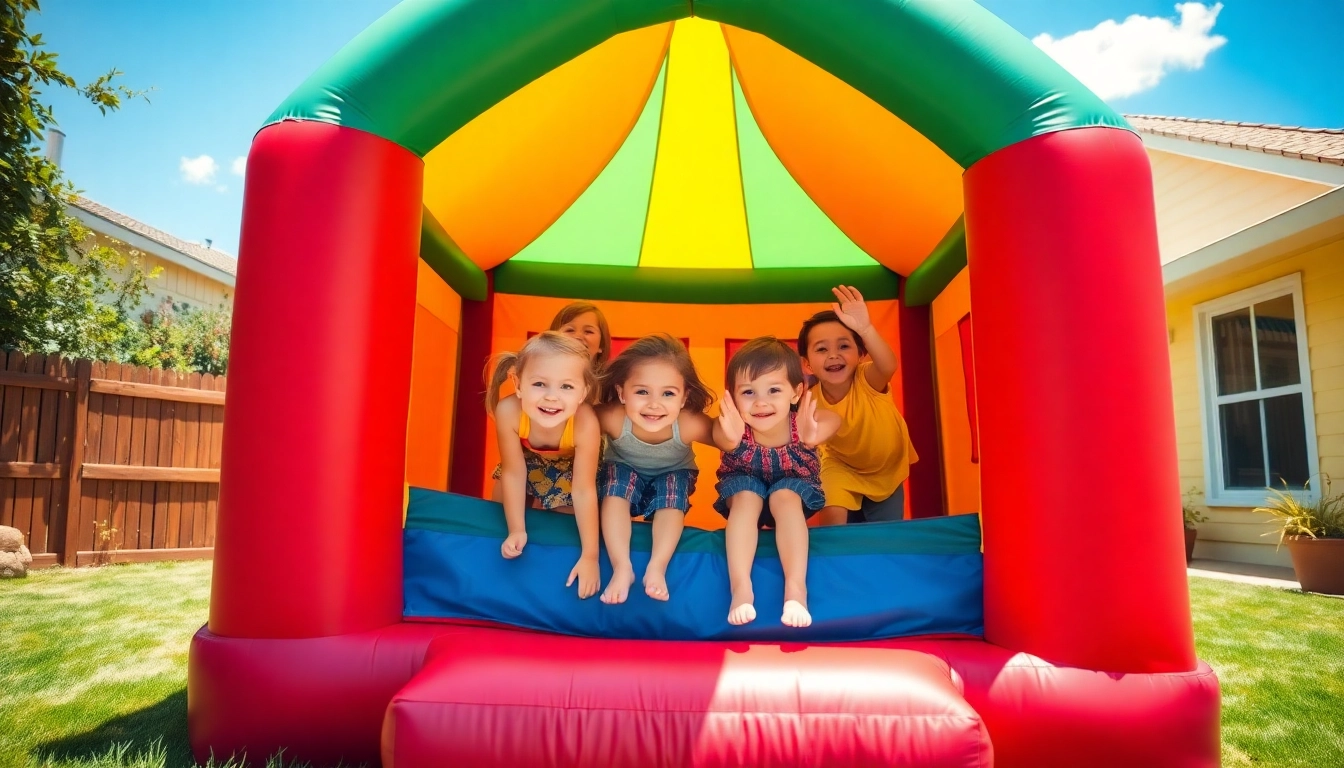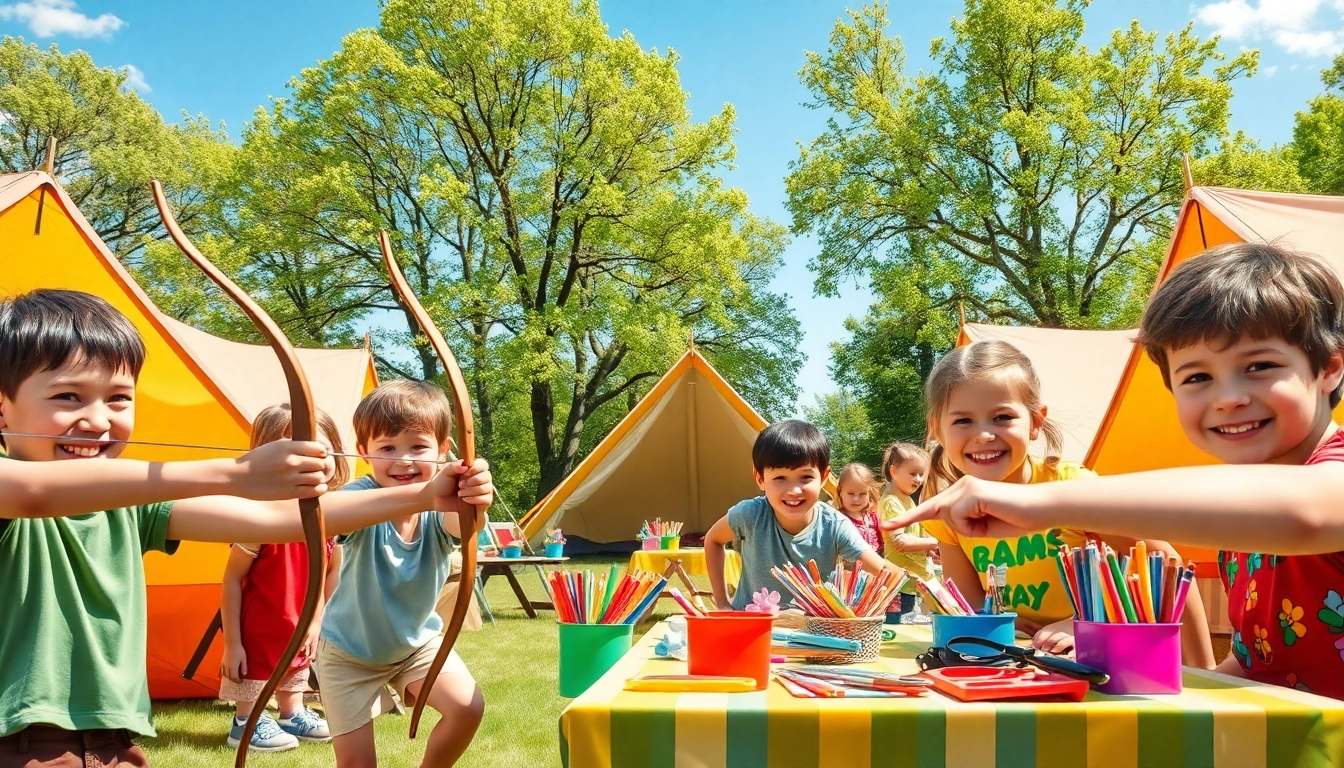Understanding Holiday Camps
The concept of holiday camps has evolved significantly over the years, gaining popularity among families looking for engaging, fun, and educational experiences for their children during school breaks. With an array of structured programs, activities, and social interactions, holiday camps provide the perfect blend of entertainment and learning. This article explores the different aspects of holiday camps, from their definition and types to the benefits they offer and how to choose the right one for your child.
What Are Holiday Camps?
Holiday camps are organized programs designed mainly for children and young adults that take place during school holidays. They vary in structure but typically offer various activities that promote social interaction, learning, and physical health. Unlike traditional vacation spots, holiday camps focus on group activities and often provide specialized experiences that cater to specific interests, from arts and crafts to sports and adventure.
Types of Holiday Camps
There is a diverse range of holiday camps available catering to various interests and age groups. Here are some common types:
- Sports Camps: These camps focus on specific sports such as soccer, basketball, tennis, or swimming. They help children improve their skills while promoting teamwork.
- Arts Camps: Designed for creative kids, these camps offer programs in theatre, music, visual arts, and dance, allowing children to explore their artistic talents.
- Adventure Camps: Outdoor adventure camps emphasize activities like hiking, rock climbing, and camping, fostering skills in navigation, survival, and teamwork.
- STEM Camps: Focusing on science, technology, engineering, and mathematics, these camps engage children in experiments, coding, and engineering projects.
- Day Camps: These camps typically run for a few hours each day, allowing children to enjoy a variety of activities without overnight stays, making them convenient for busy families.
Benefits of Attending Holiday Camps
Participating in holiday camps offers numerous advantages that extend beyond mere entertainment. Here are several key benefits:
- Social Development: Camps provide children with the opportunity to meet peers from varied backgrounds, fostering friendships and enhancing social skills.
- Skill Acquisition: Many camps focus on skill development, whether it’s through sports, arts, or academic enhancement, providing kids with tools they may use throughout their lives.
- Increased Confidence: Overcoming challenges, achieving goals, and receiving positive reinforcement from camp leaders can significantly boost a child’s self-esteem.
- Physical Activity: Camps often include vigorous physical activities that promote health and wellness habits in a fun, engaging way.
- Time Away from Screens: In today’s digital age, camps encourage children to disconnect from their devices and engage in face-to-face interactions and hands-on experiences.
Choosing the Right Holiday Camp
Factors to Consider
Selecting the right holiday camp for your child can be a daunting task. Here are some critical factors to consider:
- Child’s Interests: Understanding what your child enjoys will guide you in choosing a camp that resonates with them, whether they are fascinated by sports, arts, or science.
- Age Appropriateness: Make sure that the camp programs cater to your child’s age group, ensuring that the activities are suitable and safe for their developmental stage.
- Location: Consider the distance and travel arrangements. Camps that are closer may offer greater convenience and less travel fatigue.
- Reputation: Researching the camp’s reputation through reviews, testimonials, and recommendations can provide insights into the experiences of other families.
- Staff Qualifications: Evaluate the qualifications and experiences of the camp staff, ensuring that they are trained in providing a safe and enjoyable environment.
Popular Holiday Camp Destinations
Holiday camps can be found in various locations, ranging from rural settings to urban environments. Some popular camp destinations include:
- National Parks: Many camps are nestled within national parks, providing children with unparalleled access to nature and outdoor activities.
- Waterfront Areas: Camps located near lakes, rivers, or oceans often offer water-based activities, such as kayaking, swimming, and fishing.
- Adventure Resorts: Facilities specifically tailored for camp activities often incorporate features like ropes courses and climbing walls.
Cost vs. Value in Holiday Camps
The cost of holiday camps can vary widely based on location, duration, and type of activities offered. It’s essential to evaluate the cost relative to the value provided:
- Program Quality: Higher-priced camps often provide specialized programs, experienced staff, and exceptional facilities that can enhance your child’s experience.
- Included Amenities: Be clear on what the fees cover (meals, transportation, equipment) to ensure you understand the overall value.
- Scholarships and Discounts: Many camps offer financial assistance or discounts; don’t hesitate to inquire about potential savings.
Activities Offered at Holiday Camps
Creative and Educational Activities
Many camps offer diverse creative and educational activities designed to engage children in hands-on learning:
- Arts and Crafts: Camps often include sessions where kids can unleash their creativity through painting, crafting, and building.
- Science Experiments: Hands-on experiments can help ignite a passion for STEM subjects.
- Workshops: From photography to writing, workshops can expand knowledge and enhance skills in a fun environment.
Outdoor Adventures and Sports
Outdoor activities are a staple of many holiday camps, providing a perfect setting for physical fitness and adventure:
- Team Sports: Camps that focus on various sports can teach collaboration and sportsmanship.
- Nature Walks: Engaging with the natural environment can foster a sense of curiosity and respect for nature.
- Obstacle Courses: These promote physical fitness while challenging children’s problem-solving skills.
Social Skills and Team-building Exercises
Fostering social skills and teamwork is at the heart of many camp programs:
- Group Challenges: Activities that require collaboration and communication are designed to build trust and teamwork.
- Conflict Resolution: Camps often teach children how to navigate conflicts and improve their interpersonal skills.
- Leadership Opportunities: Many camps provide opportunities for older children to take on leadership roles among younger campers, developing their leadership skills.
Planning for Holiday Camps
When to Register for Holiday Camps
Timely registration is crucial for securing a spot at your desired camp. While specific registration dates vary, consider the following:
- Early Bird Registration: Many camps offer discounts for early registration; be sure to check their timelines and secure your child’s spot.
- Peak vs. Off-Peak Seasons: Popular camps can fill quickly during peak school holidays, so it’s wise to plan ahead.
Preparing Your Child for Camp
Preparation can help ease the transition to camp for both children and parents:
- Discussion: Talk to your child about what to expect, addressing any fears they might have.
- Visit the Camp: If possible, visiting the camp beforehand can help familiarize your child with the environment.
- Encouragement: Encourage your child to engage with camp activities and make new friends, emphasizing the fun and learning aspects.
What to Pack for Holiday Camps
Packing for camp involves more than just essentials; consider the following:
- Clothing: Pack appropriate clothing based on the weather, including swimwear and layers for unpredictable conditions.
- Personal Items: Include any personal comfort items, such as a favorite stuffed animal or blanket, for emotional support.
- Gear: Make sure to pack any necessary gear for specific activities, like sports equipment or art supplies.
Maximizing the Holiday Camp Experience
Making Friends and Building Relationships
Social connections made at holiday camps can last a lifetime. Here’s how children can maximize their social experiences:
- Engagement: Encourage your child to participate actively in group activities and make an effort to talk to fellow campers.
- Inclusivity: Teach your child the importance of including others and to be open to friendships with diverse peers.
Staying in Touch with Camp Staff
Camp staff play a crucial role in a child’s camp experience. Here’s how to ensure your child benefits from positive relationships with staff:
- Open Communication: Encourage your child to express any concerns or feedback to camp leaders.
- Gratitude: A simple ‘thank you’ can foster positive relationships and encourage staff to continue supporting your child.
Post-Camp Activities to Continue the Fun
Camp experiences shouldn’t end when the camp day is over. Here are some suggestions for continuing the fun:
- Keep Connections: Help your child maintain friendships by setting up play dates or gatherings.
- Reinforce Skills: Encourage practice in new skills learned at camp, like sports or crafts, at home.
- Reflection: Talk through the camp experience with your child, helping them reflect on what they enjoyed and learned.



